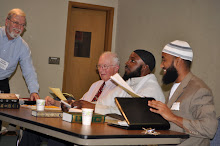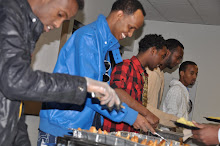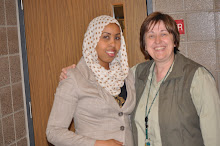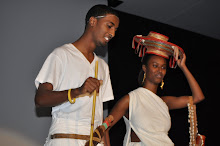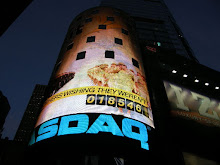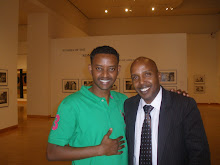Your turn: St. Cloud area needs Human Rights Office
By Luke Tripp • St. Cloud • January 30, 2010
Comments(142)Recommend(1)Print this page E-mail this article Share
Del.icio.us Facebook Digg Reddit Newsvine Buzz up!
Twitter FarkIt Type Size A A A Next Page1| 2Previous PageA packet of hateful and derogatory depictions of the Prophet Muhammad engaged in bestiality was stapled to the telephone pole outside Deko Farah shop in December.
This was not an isolated hateful incident. But many have attempted to frame this incident as a case of an individual bigot who was exercising his freedom of speech.
In fact, county attorneys in Benton and Stearns counties said they would not file criminal charges against him.
This perverted framing is a deceptive maneuver to direct our attention away from systemic racism in St. Cloud.
The city of St Cloud, historically a very conservative white town, has only recently become home to a significant population of about 6,000 Somalis who represented about 10 percent of St. Cloud’s population of 68,000 people in 2009.
There has been a series of hateful attacks against the growing Somali community since they began arriving here in the 1990s.
We should keep in mind that the attacks began before the tragedy of Sept. 11, 2001, when America’s anti-Islamic fervor reached hysterical levels.
In the mid-1990s, Stride Toward Unity, a black community organization, was formed to advocate for blacks and newly arrived Somalis.
Both groups were experiencing problems of racial discrimination.
In November 2002 the Somali Center, a local headquarters for Somali culture, was vandalized. A racist message was spray-painted on the newly opened Somali market, mosque and community center in south St. Cloud.
In May 2004 students, parents and members of the community gathered to discuss several incidents that were racially motivated at Technical High School. Principal Roger Ziemann said the fights were between Somali students and others at school and off campus. District Diversity Coordinator Gary Loch said the fights brewed out of frustration.
He further commented that, “Somali kids are very tired of being told to go back where they came from,” and he asked rhetorically, “If you heard that every day, how would you feel?”
St. Cloud police were called to Tech or the area 69 times in 2002 compared with 128 times for all of 2003
They had been called to Apollo High School or nearby 71 times in 2002 year and 138 times in 2003.
Somalis are under attack in St. Cloud because of their race (they are black), their religion (they are Muslims) and their immigration/refugee status (they are perceived to be untrustworthy aliens).
The animosity against Somalis reflects the sentiments of a significant segment (43 percent in the 2008 election) of conservative, mostly white residents in St. Cloud whose views are politically expressed by their right-wing extremist Congresswoman Michele Bachmann, who represents Minnesota’s 6th Congressional District.
She is a staunch advocate of barriers against immigrants and their culture. Her voting record on anti-immigration legislation is graded A+ by NumbersUSA, a group lobbying for reducing immigration levels.
Furthermore, as noted by The Uptake in 2008, “one comment she has never explained came during a debate she had while running for Congress in November 2005.
Prompted by a question on the rioting in France and Europe at the time, Bachmann said, ‘Not all cultures are equal, not all values are equal,’ letting it be known that she thought that people of the Muslim faith had an inferior culture to that of the United States and the West.”
My point is that racism and religious intolerance are deeply rooted and still prevalent in St. Cloud.
It follows that we need a strong Human Rights Office in city government to change the climate of bigotry in the city.
We need to make our demand for justice and human rights a top priority of city government. We can do that by lobbying and pushing city government officials to provide financial resources to support a full-time human rights director.
This is the opinion of Luke Tripp, professor and chairman of the Department of Community Studies at St. Cloud State University.
Tuesday, February 2, 2010
Subscribe to:
Comments (Atom)
